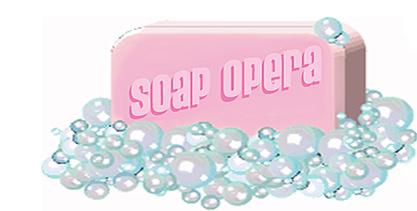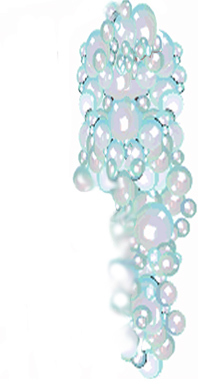By Audience Numbers They Do Live (or Die) |  |
Soap operas are the flagships of TV channels worldwide, and South Africa is no exception. This open-ended form of story-telling is designed to go on from episode to episode into eternity, or at least for as long as it is able to hold the attention of the audience. The episodes are usually publicised as 30 minutes long affairs, though in reality they last between 22 and 24 minutes, for obvious reasons: time must be allocated for that lucrative advertising income. Just like their international counterparts, South African soap operas are tailor-made to fit the winning formula. They have provocative plots filled with conflicts, intrigue, plus the characters the viewers love ¿ and the characters they love to hate. For latter purposes, a super-bitch is a must. |  |
Here are some of the most popular and most enduring local soap operas:
Generations (SABC), first aired in 1994, has held the number one position among South Africa¿s soapies for several years. The series is set in the advertising industry, with rivalry, treachery and blackmail featuring prominently. Generations is said to be the first TV series in South Africa to earn its money not only from commercial interludes, but also from product placements, cleverly woven into the script. Rhythm City (e.tv) premiered in July 2007 as a replacement for Backstage, which had lost its appeal with the audience. Although Rhythm City looks to an untrained eye like an identical twin of Backstage, it managed to find better favour with the audience. The series is set in the world of the music industry and the storylines revolve around record companies, promoters, producers, DJs, stars, would-be-stars, has-been stars, plus their families and lovers. 7de Laan (SABC) was first broadcast in 2000. This is the country's favourite Afrikaans soapie. All the characters live or work in and around the fictional Seventh Avenue in Johannesburg. Isidingo (SABC) prides itself on leading the way in innovation in the South African soapie arena. It featured the first kiss across the colour-line, the first gay character, the first mixed marriage, the first HIV positive person, the first polygamous marriage, and the first legal gay marriage on South African TV. The serial is set in a mining village and portrays different characters, from miners to mining executives. Muvhango (SABC) reflects township life, especially in Soweto, with two branches of the same family torn apart by the clash between the urban and rural way of life. The first episode was aired in April 1997. Scandal! (e.tv) likes to deal with sensitive or controversial issues like alcoholism, drug addiction, depression, HIV, sexual abuse, sweatshops, political activism... The storylines revolve around different characters linked to the newspaper called "The Voice". The series premiered in January 2005. |
|
 | |
Binneland (M-Net) is the pay-channel¿s first effort at producing an all-Afrikaans soapie. The series is set in an up-market private hospital, Binneland Clinic, in Pretoria and the stories revolve around the lives of a dedicated group of professionals at the clinic who are committed to healing the suffering of their patients. The Wild (M-Net) was hailed as a soapy with a difference when it was launched in April 2011. Unlike practically all the other soapies that are shot in the rather monotonous studios, The Wild is filmed entirely on location, on a piece of land that is home to a five-star game lodge. It won a long list of awards. Still, this soap opera did not manage to attract enough viewers, and will be terminated in March 2013, when the second season wraps up. Egoli (M-Net) is now defunct, but deserves a mention due to its longevity and spread. First aired in April 1992, it was the first South African television program ever to reach 2,000 episodes. At one time in the 1990s, the series was shown in about 30 countries. The last episode of Egoli was aired in March 2010, when the number of viewers began to dwindle. | |
If you want to discover the world of South African soap opera, or in case you missed an episode of your favourite show, browse through the bobshop TV section. |

 Other notable South African soapies include M-Net¿s Nigerian-South African co-productions Tinsel, dubbed ¿Nigeria¿s most popular soap opera¿ and Jacob¿s Cross, viewed on the small screens across Africa.
Other notable South African soapies include M-Net¿s Nigerian-South African co-productions Tinsel, dubbed ¿Nigeria¿s most popular soap opera¿ and Jacob¿s Cross, viewed on the small screens across Africa.